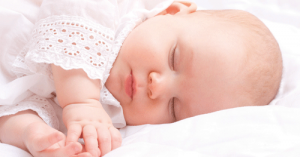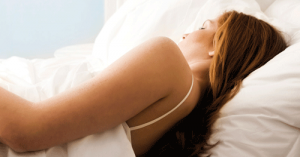 Karen Schwarzbach Unveils Crucial Advice in Conjunction with National Sleep Awareness Week and Spring Daylight Savings Time Change
Karen Schwarzbach Unveils Crucial Advice in Conjunction with National Sleep Awareness Week and Spring Daylight Savings Time Change
While many people find it easy to be mindful of and work toward being healthier by changing their nutrition, exercise and other lifestyle habits, perhaps the most crucial element to a healthy body is often overlooked: Sleep. We spend up to a third of our lives doing it and we will literally die without it. Yet, the sleep aid sections of local pharmacies continue to expand, as an estimated 60 million Americans suffer from chronic sleep disorders and over $56 billion and 25,000 lives are lost each year in the US because of sleep-related accidents. In conjunction with national Sleep Awareness Week, March 2-8, 2015 (http://sleepfoundation. org/events-activities/sleepawareness-week), sleep expert Karen Schwarzbach has compiled a list of five lesser-known facts and tips for a healthier sleep that everyone can consider and integrate into their lifestyles. Schwarzbach, a respected sleep consultant for more than twelve years who has helped literally thousands of sleep-deprived individuals finally achieve healthy and peaceful sleep patterns, outlines what she considers some of the more unknown sleep problems – and their solutions – that she encounters in our increasingly technology-dependent and high-pressure performance culture. With the recent nationwide integration the Affordable Health Care Act, Schwarzbach’s work has been increasingly in demand as focus on corporate wellness programs now being required by the act (for corporations of a certain size) continue to proliferate. Schwarzbach, who routinely advocates sleep as one of the “Three Pillars of Health” (along with exercise and nutrition), has outlined the following top five oft-times surprising factors that contribute to modern Western cultural sleep maladies and her corresponding secrets for a better night’s sleep:
•Avoid Wine Before Bedtime. It’s a nightly ritual for many Americans – drinking a couple of glasses of alcohol directly before falling asleep. In fact, many people consider alcohol a sleep aid due to its relaxing qualities. But, what many don’t realize is it is also common for pre-bedtime drinks to contribute to one being wide awake several hours after conking out. Schwarzbach explains that while drinking before bed can induce sleep, it actually disrupts sleep and diminishes the quality and depth of sleep, leading to restlessness and frequent wakings leaving one feeling fatigued the next morning. Also, alcohol is a diuretic, which can be dehydrating as well as increase one’s need to go the bathroom, causing one to awaken from slumber. She recommends that if wine or alcohol are a part of your evening routine, try to stop drinking at least one hour prior to sleep to preserve the most deep and crucial stages of sleep.
•Avoid Electronics Before Bedtime. Many people routinely attempt to fall asleep immediately after watching television, using their laptops or checking e-mail or using apps on their smart phones. Many people are unaware that these devices all emit low blue light, which is absorbed and processed by the brain and can disrupt or slow down the body’s melatonin production, which influences natural nighttime sleep algorithms. Schwarzbach recommends ceasing the use of all devices at least 1 hour prior to going to bed and not keeping phones and laptops on at the bedside. 
•Sleep Tracking Devices Aren’t a Cure-All. As increasing use of technology can impair sleep, the recent onslaught of new technology devices and apps that help track and monitor sleeping habits can help improve overall sleep. However, Schwarzbach warns that while these technologies can provide important data, they are often unaccompanied by meaningful and effective behavioral modification programs. Schwarzbach promotes a “High Tech with High Touch” approach, working with her clients to map out routines for remedying problem-causing factors to maximize the useful info that has been gathered.
•Daylight Savings Time Can Debilitate. While it may seem like only an hour and of little change to one’s daily schedule, biannual time shifts can dramatically and adversely affect sleeping patterns for weeks – even months – following the clock changes. Even a slight change in the body’s regular circadian rhythm can throw sleep patterns into disarray, an issue Schwarzbach says is often incredibly evident in children. In order to better adapt to these changes, Schwarzbach recommends starting to adjust the time you go to bed and the time you wake up by 15 minutes every couple of days preceding the time change. This way you have helped your body land back where it began when the clock moves forward by an hour in the Spring.
•Never Underestimate Sleep Environment. Factors including noise, light, temperature, pillows and mattress and decor might seem like obvious considerations for an optimal sleeping environment, but Schwarzbach emphasizes the importance of considering all five of these factors for improving unhealthy sleep. It could be as easy as taking down a loudly colored painting on the wall, reducing the room lighting to a lower bulb wattage (low blue light), turning the clock away from your bed so you’re not tempted to start doing math in the middle of the night figuring out how many more hours of sleep you can get, using a white noise maker, choosing the most appropriate bedding or decreasing the room temperature to between 65 and 72 degrees Fahrenheit (“Cool is the Rule!”) degrees prior to sleep. “Insomnia is perhaps the most underrated health ailment in the US and Sleep Awareness Week is a time for self-reflection and education for improving these ailments,” said Schwarzbach. “Our sleep patterns dramatically affect our health, performance and over all sense of well-being. Once people have the tools and information to modify their sleeping habits, they can experience life-changing results within days and weeks.” Karen is the founder of sleep consultancy Pivotal Sleep and Babies To Sleep, focused specifically on children. Her businesses can be found at: http://www.pivotalsleep. com and http://www.babiestosleep.com.



